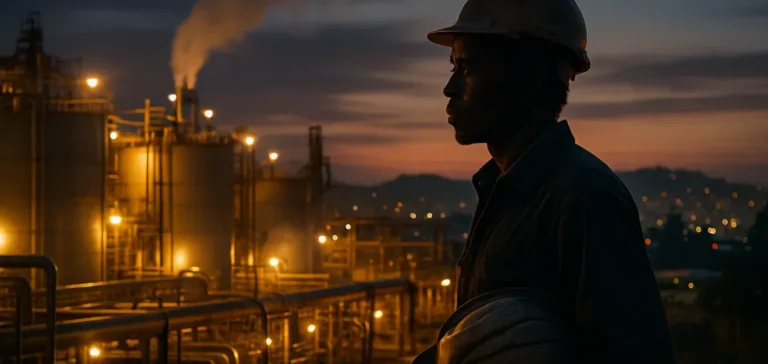Madagascar is currently facing a major energy crisis, characterised by recurring power outages that severely affect households and businesses. According to available data, only around 37% of the Malagasy population has access to electricity, with this figure dropping to 7% in rural areas. Faced with this structural challenge, the Malagasy government is now focusing on immediate and medium-term energy solutions to stabilise and improve access to electricity across the island.
An immediate response with the thermal plant
Olivier Jean-Baptiste, Madagascar’s Minister of Energy and Hydrocarbons, recently announced before Parliament the imminent commissioning of a 105 MW heavy fuel oil thermal power plant. This infrastructure should enable short-term stabilisation of electricity distribution, notably in the capital Antananarivo, where power outages are particularly frequent. The government presents this initiative as a pragmatic and immediate response to critical energy needs. This thermal power plant is part of a broader strategy aimed at swiftly restoring a sufficient level of electricity supply to meet immediate demands.
Structural development of renewable energy
Meanwhile, the government is accelerating several large-scale projects in the field of renewable energies. The Sahofika hydropower plant, with a planned capacity of 205 MW, was recently relaunched with support from international partners. According to official forecasts, this project could meet the electricity needs of eight million people and avoid annual emissions of 900,000 tonnes of carbon dioxide. This power plant aligns with the government’s ambition to increase the share of renewable energies to 55% of the national energy mix by the end of this year.
Diversification of energy supply
Additionally, further projects aimed at diversifying energy supply are currently being implemented, notably the Ambatolampy solar plant with a capacity of 40 MW. Combined with the development of mini-grids in rural areas, this facility is expected to significantly enhance off-grid electricity access for currently isolated populations. Madagascar, which has an estimated hydropower potential of around 7,800 MW, currently exploits only approximately 4%. The government also intends to modernise existing electric transmission infrastructures and enhance public lighting to optimise electricity distribution nationwide.
An encouraging environment for private investments
According to the World Bank, achieving the Malagasy government’s objective of an 80% electricity access rate by 2030 will require strengthened governance and increased involvement from private investors. In a note published in February 2025, the international institution highlighted that significant improvements in the management of the national electricity company Jirama constitute an essential factor for attracting these investments. This point remains crucial as the country pursues its energy projects to effectively meet the growing needs of its population.






















